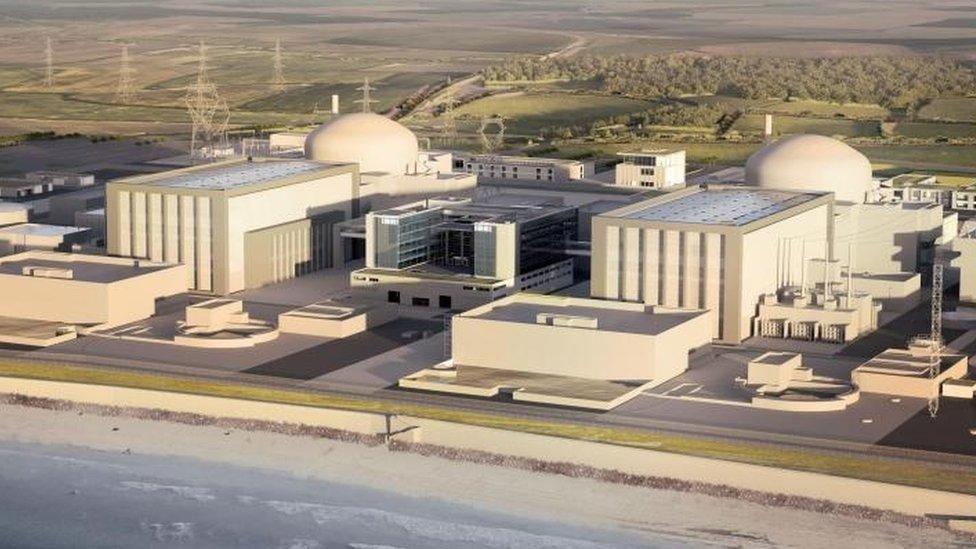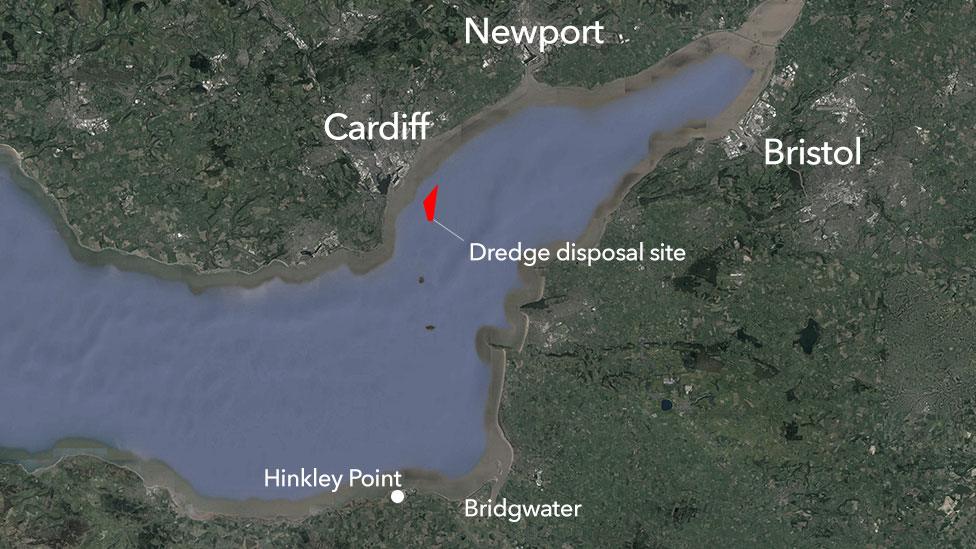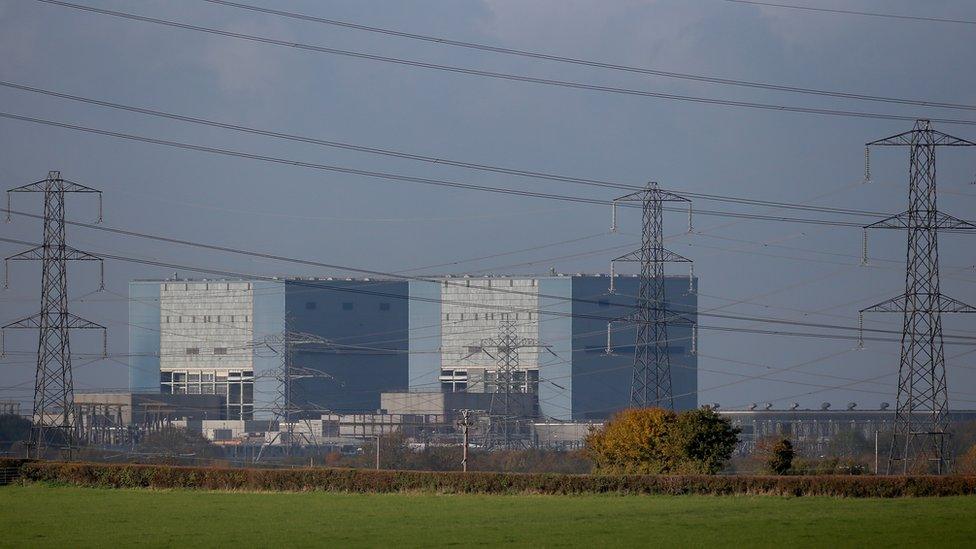Hinkley Point nuclear plant sediment 'poses no risk'
- Published

Hinkley Point C is expected to create more than 25,000 jobs
Sediment and mud set to be dumped off Cardiff Bay after being taken from near a disused nuclear plant is safe, officials have said.
Natural Resources Wales (NRW) has finished assessing sample results taken from a new power plant construction site at Hinkley Point in Somerset.
It said independent experts found the chemical and radiological results were within "acceptable, safe limits".
EDF Energy said last year the project was not harmful to the environment.
The Hinkley C power plant building project, external includes dredging mud and sediment from the seabed in the Bristol Channel, near the decommissioned Hinkley Point A and B, and disposing of it just over a mile out to sea from Cardiff Bay.
The project prompted concerns from campaigners, who feared the mud could have become contaminated by discharges from Hinkley.
The opposition was led by independent consultant Tim Deere-Jones, who specialises in marine radioactivity, who had claimed sampling of the mud to check for potentially harmful contaminants had been "inadequate".

John Wheadon, NRW permitting services manager, said: "Our seas are home to valuable wildlife and habitats and are important to our well-being and economy.
"It's our job to make sure activities do not harm these vital marine environments.
"The sediment from the dredge sites has been tested thoroughly by independent experts.
"We are satisfied there is no risk to people or the environment and the material is safe for disposal."
The analysis was carried out by the Centre for Environment, Fisheries and Aquaculture Science (Cefas).
And NRW said the results were assessed by its radiological experts in consultation with Public Health Wales.
NNB GenCo will carry out the work after it was given a marine licence, external by NRW for the disposal of dredged material in 2014.
A condition in the licence was to test samples of the seabed sediment at the proposed dredging sites for "harmful chemicals and radiological materials before any disposal could take place", according to NRW.
It said it also asked Cefas to carry out a radiation dose analysis from deeper sediment samples taken in 2009, as well the recent samples, and the results showed the "material is not harmful".
A Cefas report into the mud previously said the impact of radioactivity on people was the equivalent of eating 20 bananas each year.
However calls for further testing to be carried out have been made by Independent AM for South Wales Central Neil McEvoy who fears the mud could contain radioactive particles.
"I have major concerns about safety," he said.
"This mud will be washed all around the Welsh coast, so we should thoroughly test the mud."
Mr Wheadon, from NRW said he was satisfied no further testing of samples from beneath the surface was necessary.
"The sampling undertaken at various depth in 2009, and the ongoing trend analysis based on results of annual monitoring through a UK government programme in conjunction with independent samples taken and tested in 2013 and 2017, were sufficient for us to conclude there is no evidence of higher radioactivity in deeper sediments in the Hinkley Point area," he said.
"However, as agreed with the Welsh Assembly's Petitions Committee, we asked the licence holder to consider further voluntary sampling at depth. Following the results of the samples taken in 2009, 2013 and 2017, the licence holder did not consider it necessary as there is no scientific basis for any additional sampling."
He said NRW were satisfied the material was "suitable to dispose at the Cardiff Grounds site."
- Published5 December 2017

- Published25 September 2017
